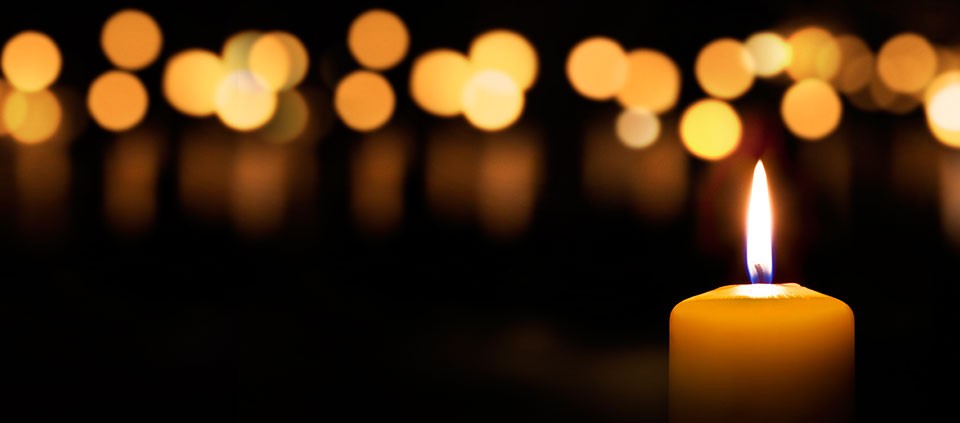Healing from Violence

Updated June 1, 2020
What can we do to heal our fear and worry when racism, bigotry, anger, and violence are apparently possible anywhere? As a teacher of both resilience and positive psychology, I often hear this question, and I offer these four elements on the path toward healing:
Feel what you feel. We know that the most resilient of us begin healing by first allowing ourselves to feel what we feel— neither hide sadness and despair, nor deny the depths of pain. Emotions, when set free within us, have a natural rhythm to them, an ebbing and flowing, that not only signals to us what we are uniquely experiencing, but also connect us to the state of being human. As we allow ourselves to feel all that we feel, even complicated and confusing feelings, we create space within to begin to know what we must do to heal. Do we need to reach out to others? Take action? Pray? Or are we better served by resting? Wisdom emerges, though only after we have allowed ourselves to be human first, and invite our emotions to naturally rise and then shift.
Connect. Positive psychology research reveals that connection is a preeminent source of healing. When we reach out to others, we experience a sense of community; we feel less alone and more optimistic, generally less anxious, and often more peaceful. In times of darkness, connection provides a sense of safety, and even an increase in bravery. When I witness others posting on social media about their care for those who have lost loved ones in a mass shooting or other act of violence, I find the courage to post myself. Our vulnerability decreases in the presence of connection, which leads to an increased capacity to stand up for what we believe in and to call out injustice.
Here, too, in the territory of connection, deeper healings occur. The hearts of those who lost their sons, daughters, friends, lovers, and parents will never be fully rendered whole—but connection to others who care will soften the edges of that shattering over time and, perhaps, one day, illuminate a remembrance of peace.
Practice mindfulness. So much is written about mindfulness, and how it catalyzes awareness, presence, and serenity. It can decrease anxiety and ease fear. For those of us who study humanity at its best, we understand as well that mindfulness brings about something else: the capacity to pause before choosing the next action or voicing the next statement. In states of anxiety or fear, we are prone to make choices that serve to keep us safe, or that strike out against that which we fear. Yet other choices exist, ones that bring about understanding, clarity, and wisdom. When the world is falling apart around us we need to be clear in our thoughts and deeds, so that we don’t cause harm to ourselves, inflame the wounds of others, or act carelessly.
Hold on to hope. Not a Pollyanna-ish hope that all is well—that would be delusional in the face of such violence—or that all will be perfect one day. No, I am speaking of a hope grounded in reality. People are cruel. Life is tragic. And yet, we are also capable of astonishing kindness. Tal Ben-Shahar, a thought leader in the field of positive psychology, teaches us to move toward a grounded optimism, a hopefulness based on facing reality as it is, inclusive of both the difficult and the good, the excruciating and the uplifting. Howard Zinn, history professor and playwright, offers a similar sentiment: “To be hopeful in bad times is not just foolishly romantic. It is based on the fact that human history is a history not only of cruelty, but also of compassion, sacrifice, courage, kindness. What we choose to emphasize in this complex history will determine our lives. If we see only the worst, it destroys our capacity to do something. If we remember those times and places—and there are so many—where people have behaved magnificently, this gives us the energy to act, and at least the possibility of sending this spinning top of the world in a different direction.”
I wish for my children a world that is safe and kind. I cannot promise them that. They will need to discover how to discern what most helps them recover from acts of hate or moments of loss, so that they can continue to experience the beauty of living, and can find within themselves the capacity to offer their own good, their own gifts and passions. I wish the same for all of us.
© Kripalu Center for Yoga & Health. All rights reserved. To request permission to reprint, please e-mail editor@kripalu.org.
Maria Sirois, PsyD, is a positive psychologist and seminar leader who teaches with wisdom, authenticity, and humor at the intersection of resilience and flourishing.
Full Bio and Programs